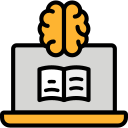Evaluating Authority and Bias in Encyclopedia Entries
Compare expert-edited encyclopedias with community-moderated ones. Editorial boards, revision logs, and conflict-of-interest policies signal quality. Read the platform’s about pages to understand governance, then comment on how transparency affects your confidence.
Evaluating Authority and Bias in Encyclopedia Entries
Scan citations at the bottom of entries. Ask: Are sources peer-reviewed, recent, and relevant? Follow DOIs to originals. If references feel thin or outdated, note the gap and seek corroboration before citing or paraphrasing anything.

